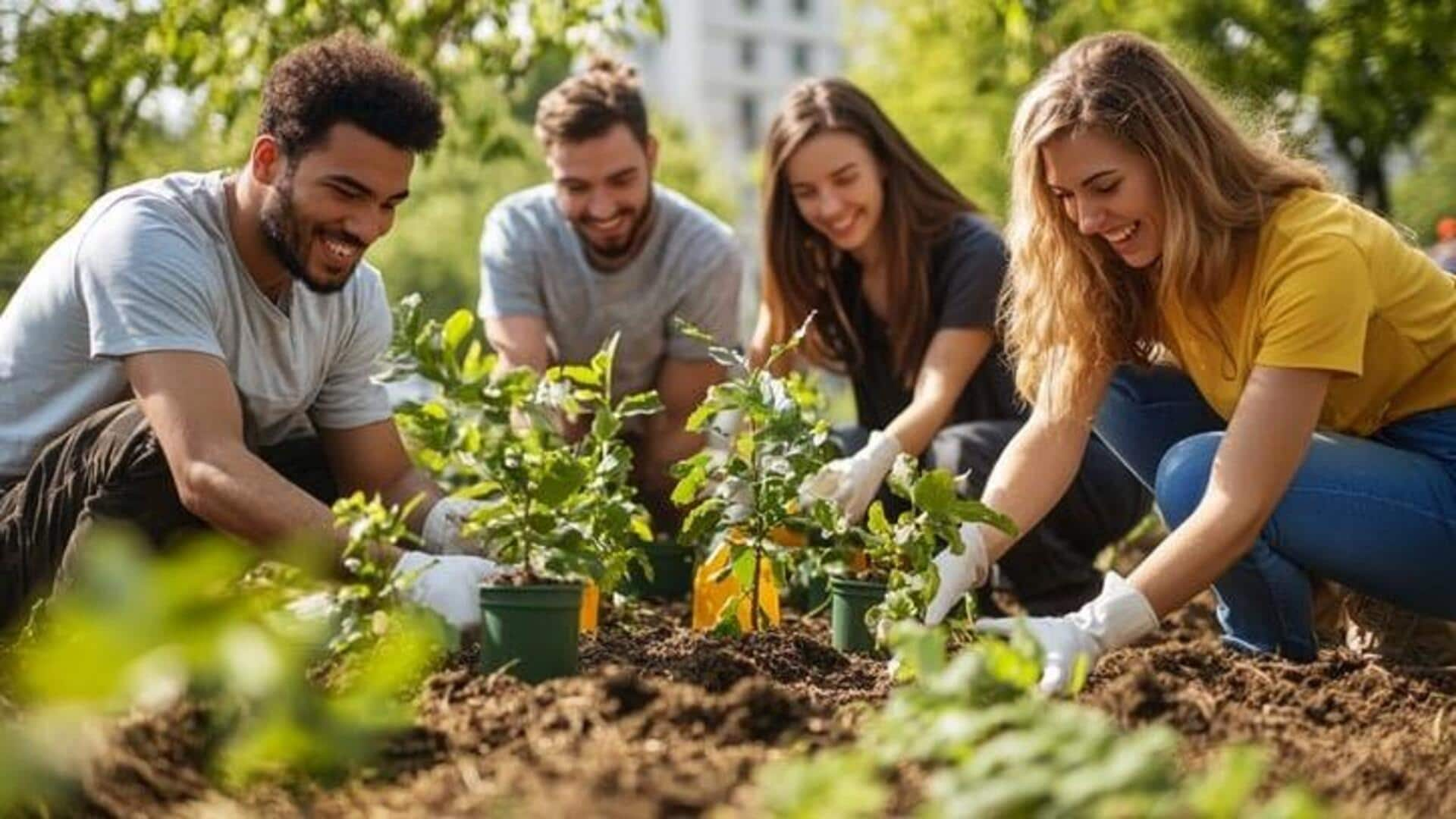
Elevating mood with community gardening participation
What's the story
Community gardening is a powerful and underutilized tool for boosting mood and promoting well-being.
By getting involved in community gardens, people can reconnect with nature, get some exercise, and build a sense of community.
This article delves into the benefits of community gardening and offers tips on how you can participate.
Green spaces
Discovering the joy of green spaces
Studies have proven that immersing oneself in green spaces has powerful mental health benefits.
Community gardens, with their vibrant landscapes, serve as natural stress relievers, melting away anxiety and depression.
Plus, the act of gardening itself can lift your spirits, build your confidence, and make you feel good about what you've achieved.
Physical health
The power of physical activity
Gardening isn't just about planting; it's a full-body workout that includes digging, lifting, bending, and walking.
These activities improve physical fitness, contribute to weight loss, and promote heart health.
Even thirty minutes of moderate gardening can burn 200 calories.
This makes gardening a great way for people to keep fit and lead a healthy lifestyle.
Social bonds
Fostering social connections
Community gardens are not just about growing food; they're also about cultivating relationships and building stronger communities.
Working side by side with your neighbors, you're not just planting seeds in the ground; you're also sowing the seeds of friendship, understanding, and mutual support.
Research backs this up! Studies show that people involved in community gardening projects feel a stronger sense of social connectedness.
Skill building
Learning new skills together
By participating in community gardening, individuals have the opportunity to learn about horticulture, sustainability practices, and nutritious food choices.
These educational benefits extend beyond personal growth, cultivating a sense of environmental responsibility within the community.
By learning together, gardeners can share knowledge and experiences, enhancing the educational value of community gardening.
This collaborative learning fosters a sense of community and shared ecological stewardship.
Community impact
Contributing to community well-being
By participating in community gardening, people greatly contribute to improving the aesthetic appeal and ecological health of their local area.
These gardens become essential providers of fresh produce for community members, particularly in urban environments where access to fresh fruits and vegetables can be limited.
This initiative not only beautifies neighborhoods but also tackles food access challenges, bringing healthy eating choices directly to urban residents.